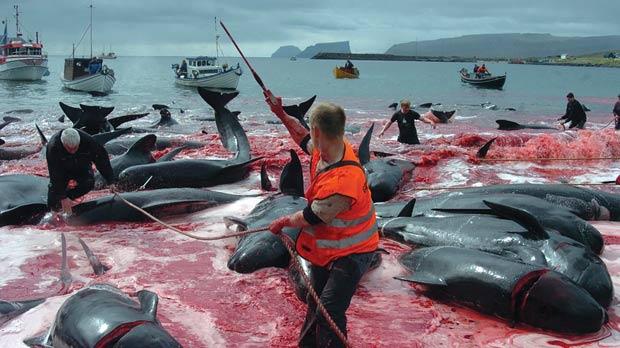One hundred and seventy-seven whales have been killed by Japanese whalers in the north-west Pacific Ocean as part of an annual hunt, Japan’s Fisheries Ministry said on Tuesday, September 26, 2017.

The number of whales killed had been previously stipulated for the hunt, which Japan says is carried out in the name of scientific research.
This year, 43 minke whales and 134 sei whales were killed, the ministry said.
Whaling is formally allowed in Japan in spite an international moratorium banning the killing of whales for commercial purposes in place since 1986, and repeated public protests against it. Whaling is the hunting of whales for their usable products like meat, oil and blubber.
Critics said that the country uses a loophole in the charter of the International Whaling Commission by claiming that the killings are carried out for research purposes.
After the animal carcasses are examined, including the stomach contents, the meat could be sold for consumption.
In 2016, a similar scenario played out when over 300 whales, including 200 pregnant females, were slaughtered in a whaling mission in the Southern Ocean.
Japan confirmed the kill as its ships returned from their “scientific” expedition in the Antarctic region.
Its actions are in defiance of international criticism and despite a 2014 UN legal decision that ruled so-called scientific whaling activity in the Southern Ocean was a front for commercial hunts.
Greens senator Peter Whish-Wilson accused the federal government of turning its back on Japan’s “sickening” illegal activity.
“Not in 40 years has an Australian government done so little to prevent whaling on our watch and in our waters,” he said.
He accused the government of breaking Environment Minister Greg Hunt’s personal election promise to send a patrol vessel to the Southern Ocean to monitor whaling activity.
The government has repeatedly refused to confirm whether it undertook any monitoring missions in the Southern Ocean that summer.
It has also refused to release legal advice it sought when Japan announced it would resume whaling, despite the International Court of Justice ruling.
Four survey ships from Japan’s Institute of Cetacean Research were in the Antarctic region over a period of 115 days from December 1, 2015.
The institute’s report had confirmed 333 minke whales were captured.
Darren Kindleysides, director of the Australian Marine Conservation Society, said the 2014/15 summer was the first time in 70 years Japan had stopped its whaling programme – but the break was short-lived.
He said Australia’s leading international experts had examined Japan’s new so-called scientific research programme this year and found it was also a guise for killing whales, and a breach of international law.
“That puts the onus on the Australian government to make sure this is the first and the last season of Japan’s new so-called scientific programme.”
The Australian government in December 2015 described Japan’s decision to resume whaling over the summer as “deeply disappointing” and insisted it raised concerns at the highest level of the Japanese government.
It had said it would consider sending a Customs patrol vessel to the Southern Ocean and explore options for legal action.
But conservation group Sea Shepherd in February 2016 said the Japanese fleet had faced little or no scrutiny over the summer and Australia and New Zealand seemed unwilling to send a ship to intercept them.
